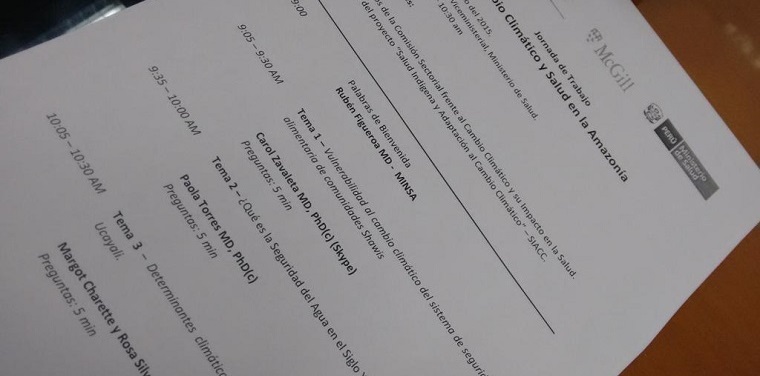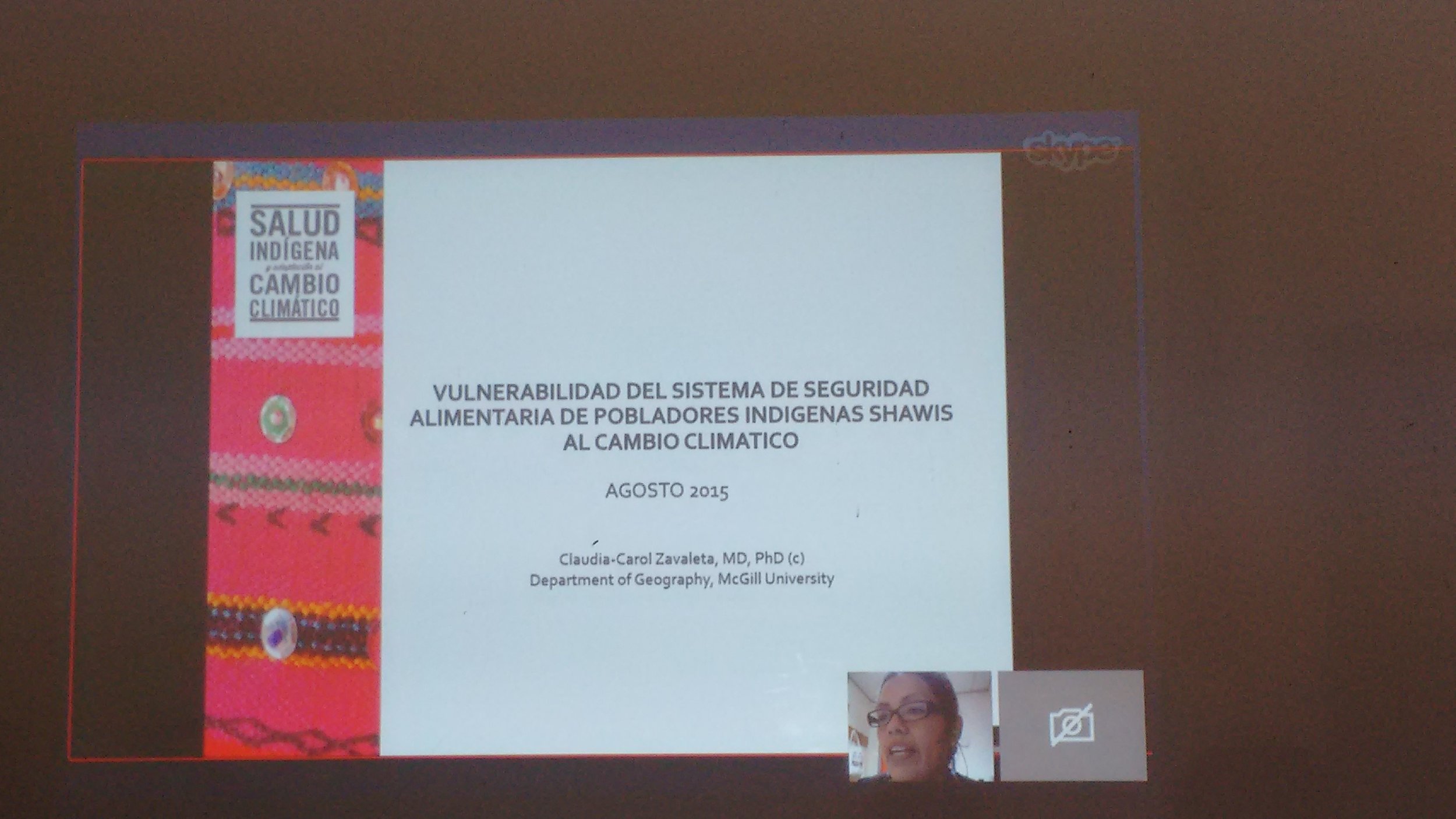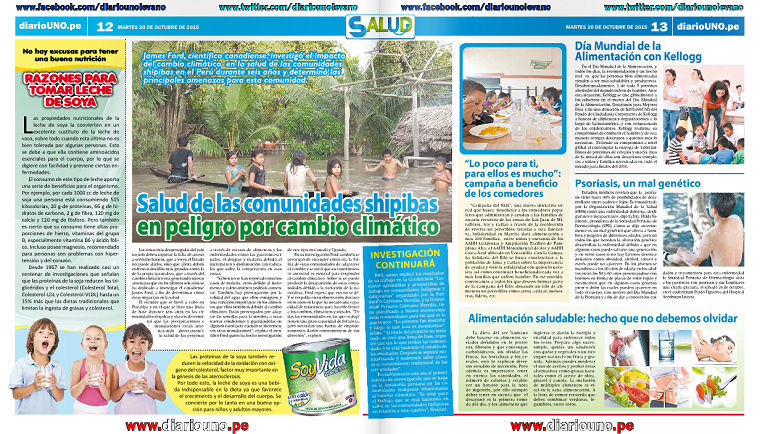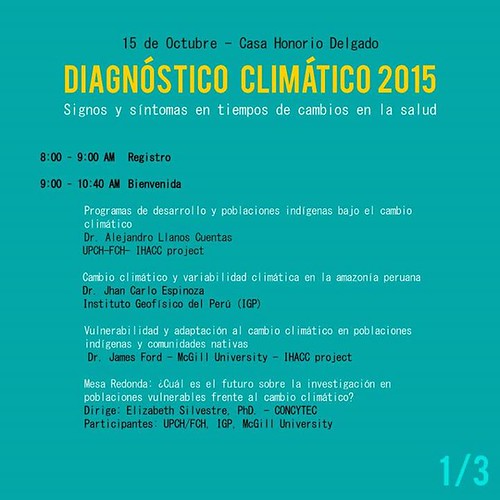On August 27th-28th, members of the IHACC-Peru team participated in a two day meeting with members of the Peruvian Ministry of Health in the context of the National Commission on Climate Change in Lima, Peru. The Commission was created in 2014 in the wake of COP20 with the objective of working towards the establishment of a national strategy on climate change for the country.


The event was a great opportunity for IHACC researchers to discuss topics related to health and climate change with decision makers at the national level and to make connections with key informants that will help further research in the area. In attendance (both in person and virtual) were Carol Zavaleta (McGill), Jahir Anicama (UPCH), Margot Charette (McGill), Rosa Silvera (UPCH) and Paola Torres-Slimming (UofGuelph/UPCH).
During the first day of the meetings, IHACC researchers presented results from the project from IHACC communities in Ucayali and Loreto. The presentations were well received and the team was invited to a workshop the following day, that focused on identifying key diseases affected by climate change in Peru for monitoring and evaluation in the future.


As Carol Zavaleta states,
"It was my first presentation for Peruvian people about my thesis. I was very glad to hear a notorious concern about the gap of knowledge related with climate change and impacts on health. I received questions about my methods, but mostly about how to link climate change with the food security in a context where multiple factors are concurrent such as the Amazon region. One of the participants have indicated that the ministry of health did not have many investigations about climate change and that this thesis will help them to establish further additional research considering new variables (e.g. seasons) in order to prioritize interventions."
Similarly, Margot Charette noted that this event was a key opportunity for the IHACC group in Peru to show its interest in being involved in the climate change discussion at the national level, and to stay involved in the future. And as Jahir Animaca pointed out in his report, IHACC has been invited to continue to participate in the consultation process for the public health sector of the National Commission on Climate Change in Peru, so keep an eye out for more!








